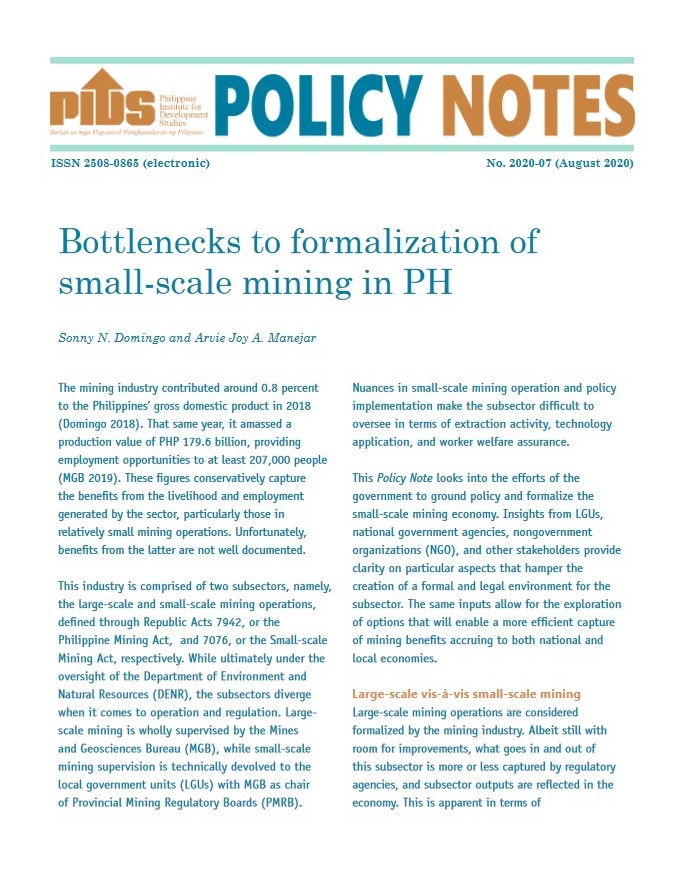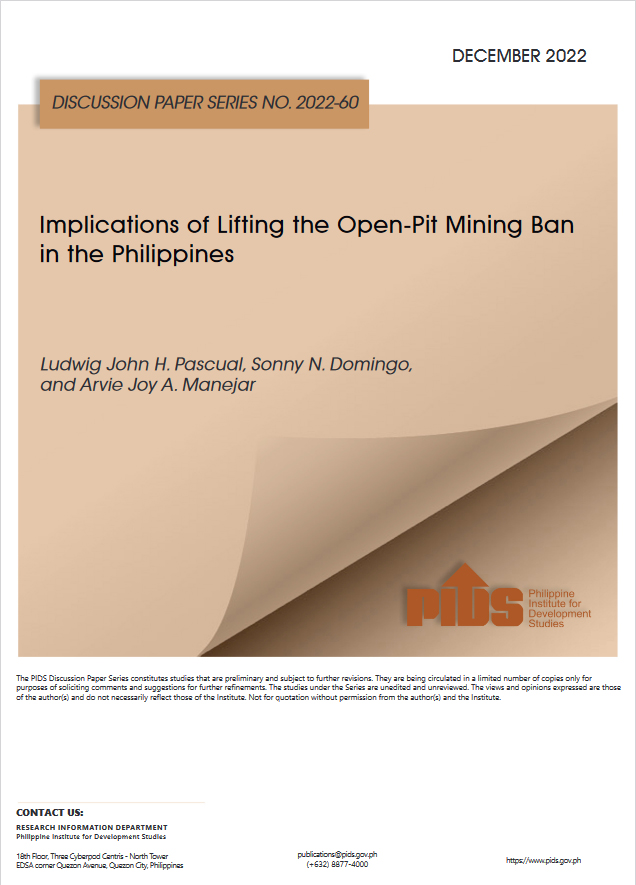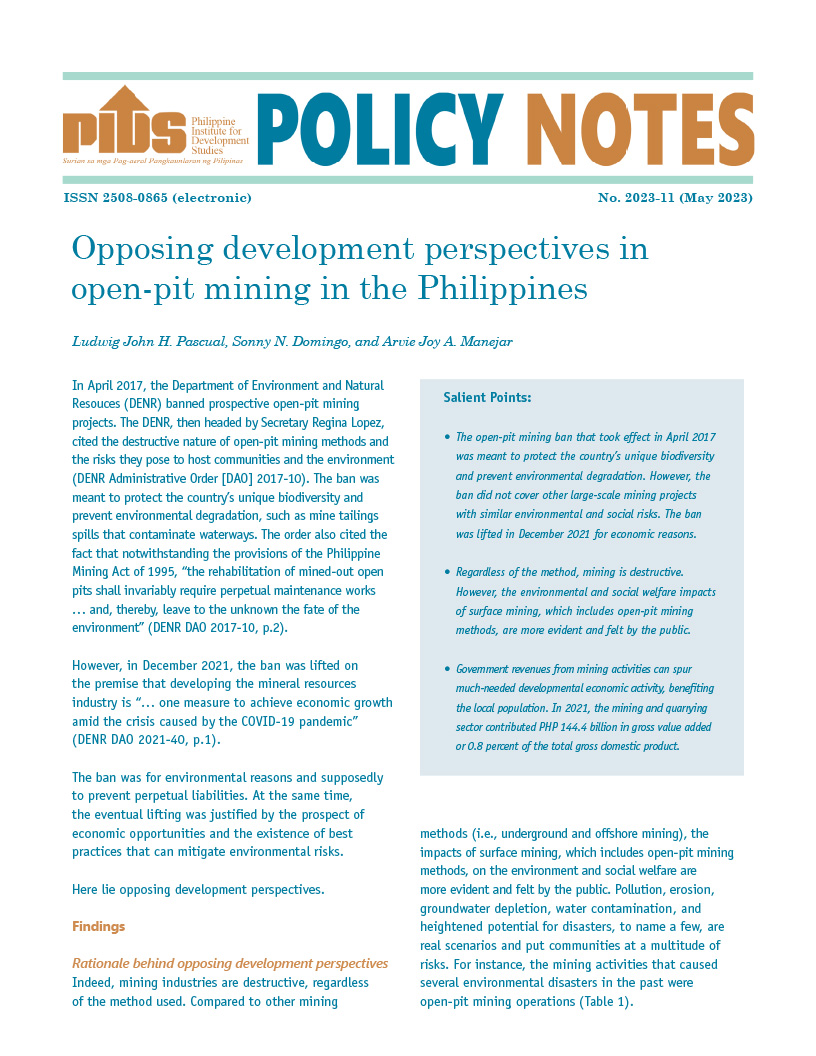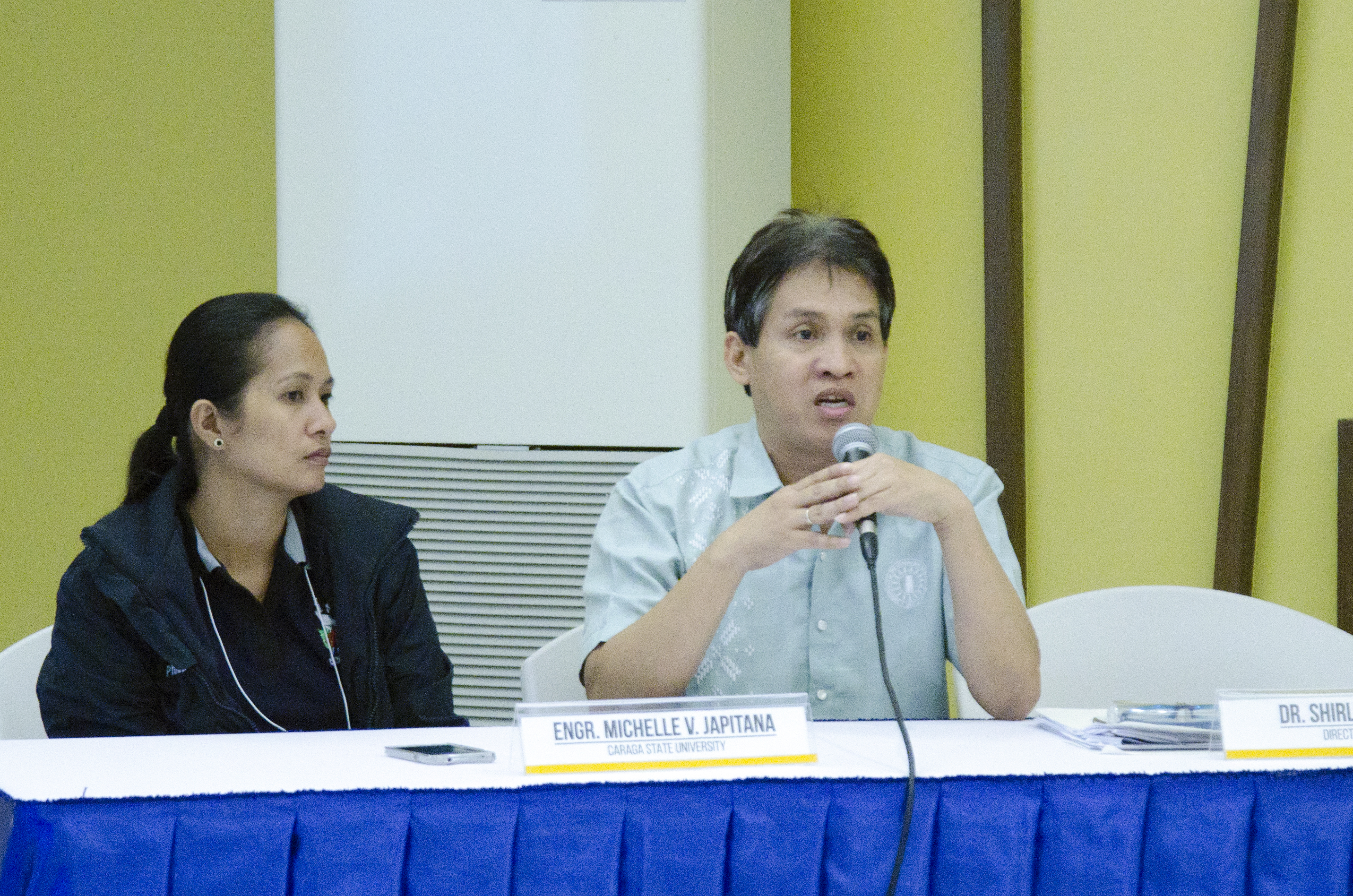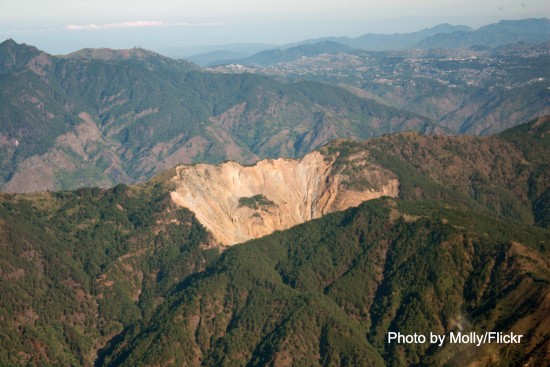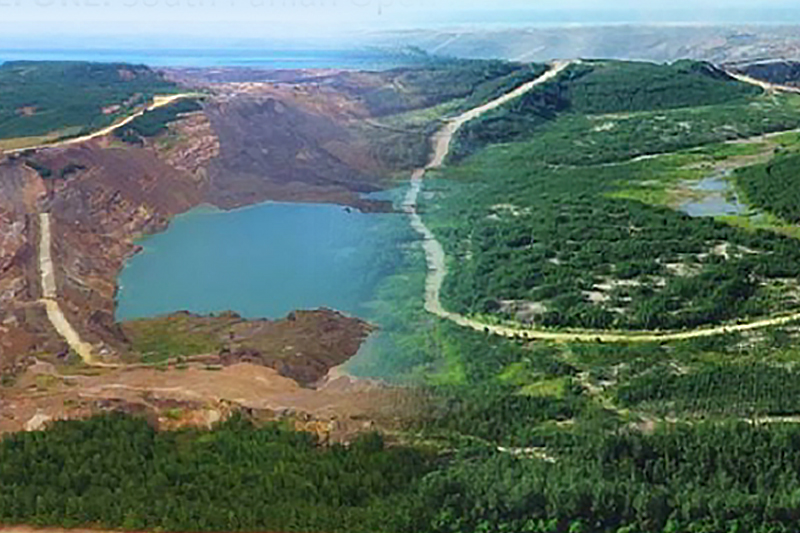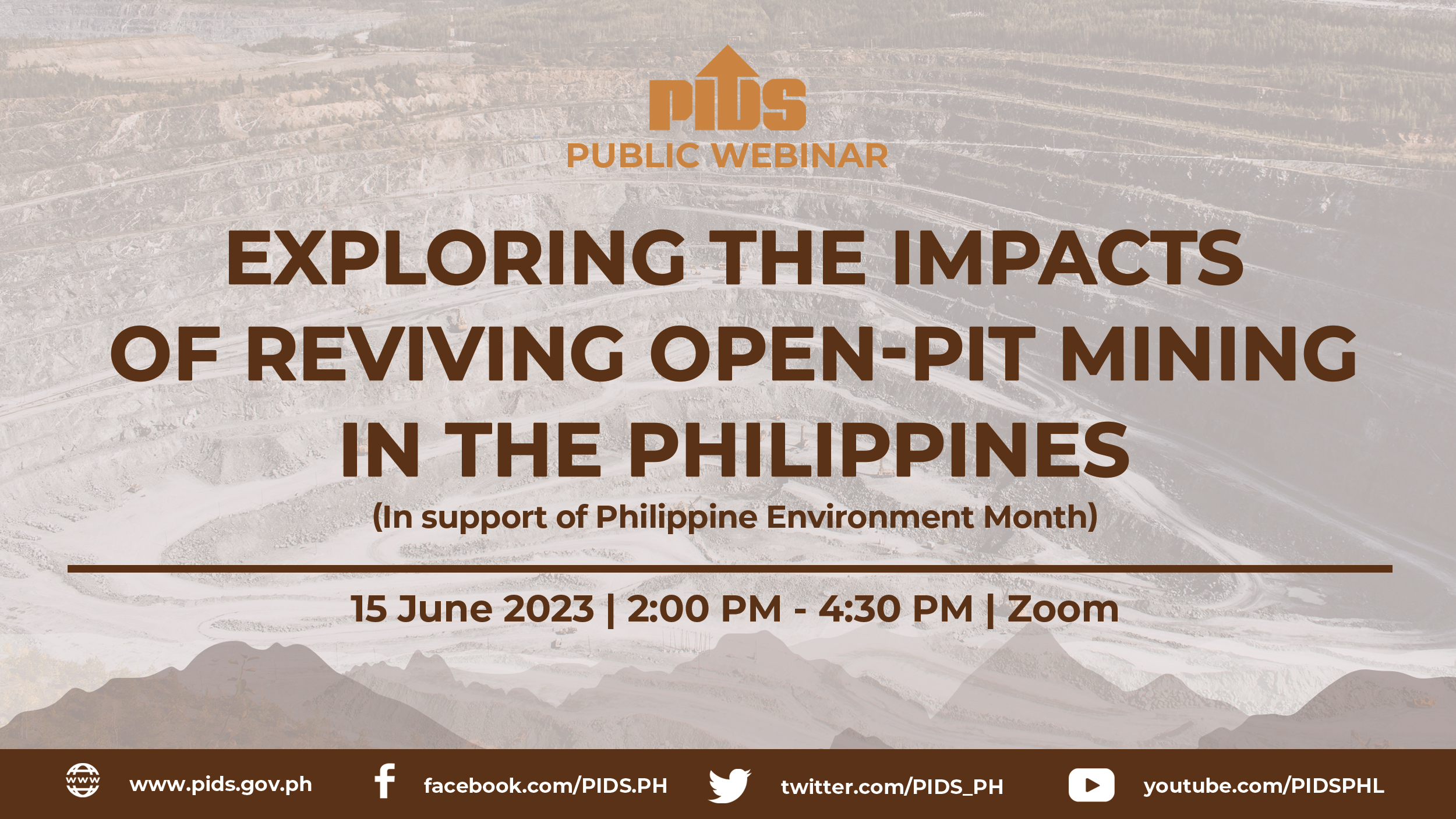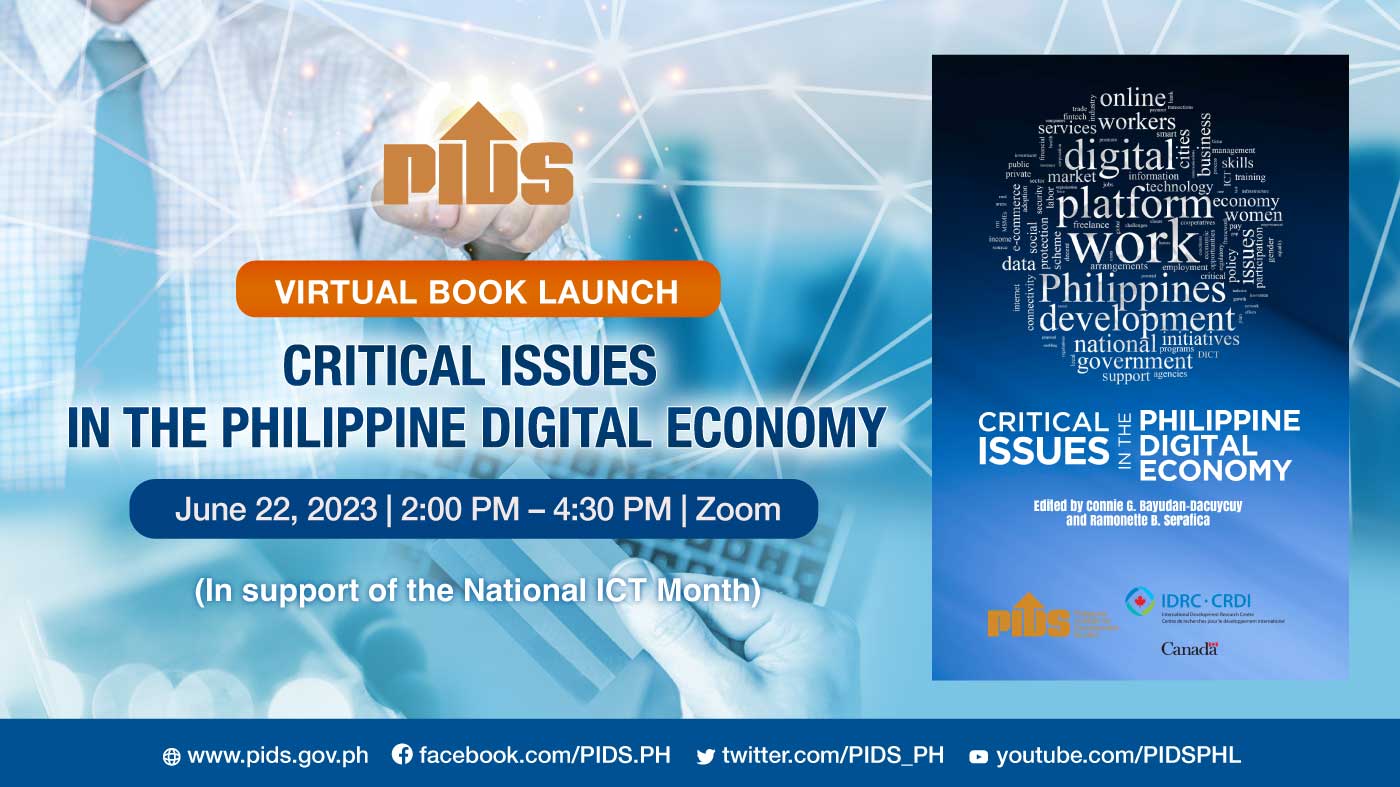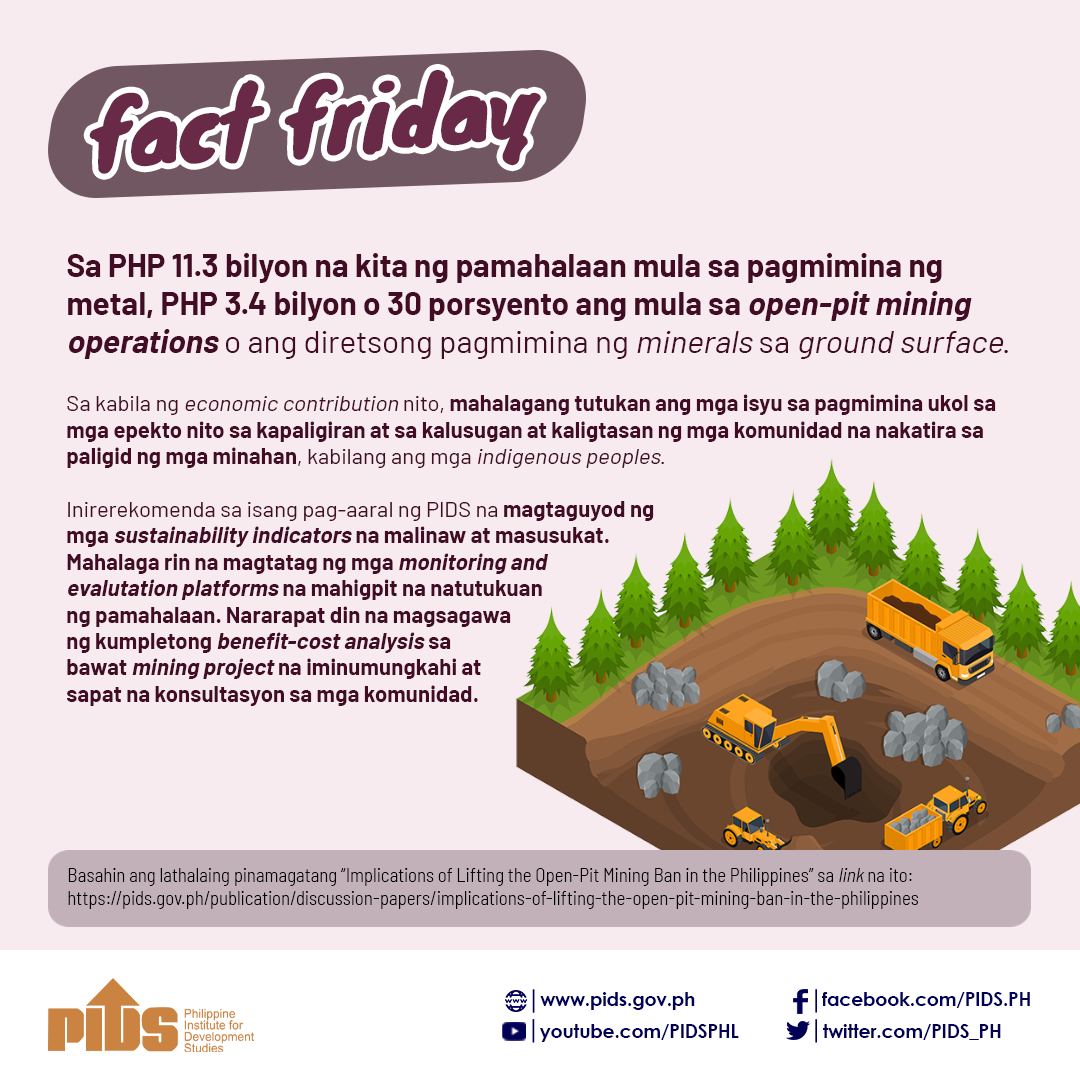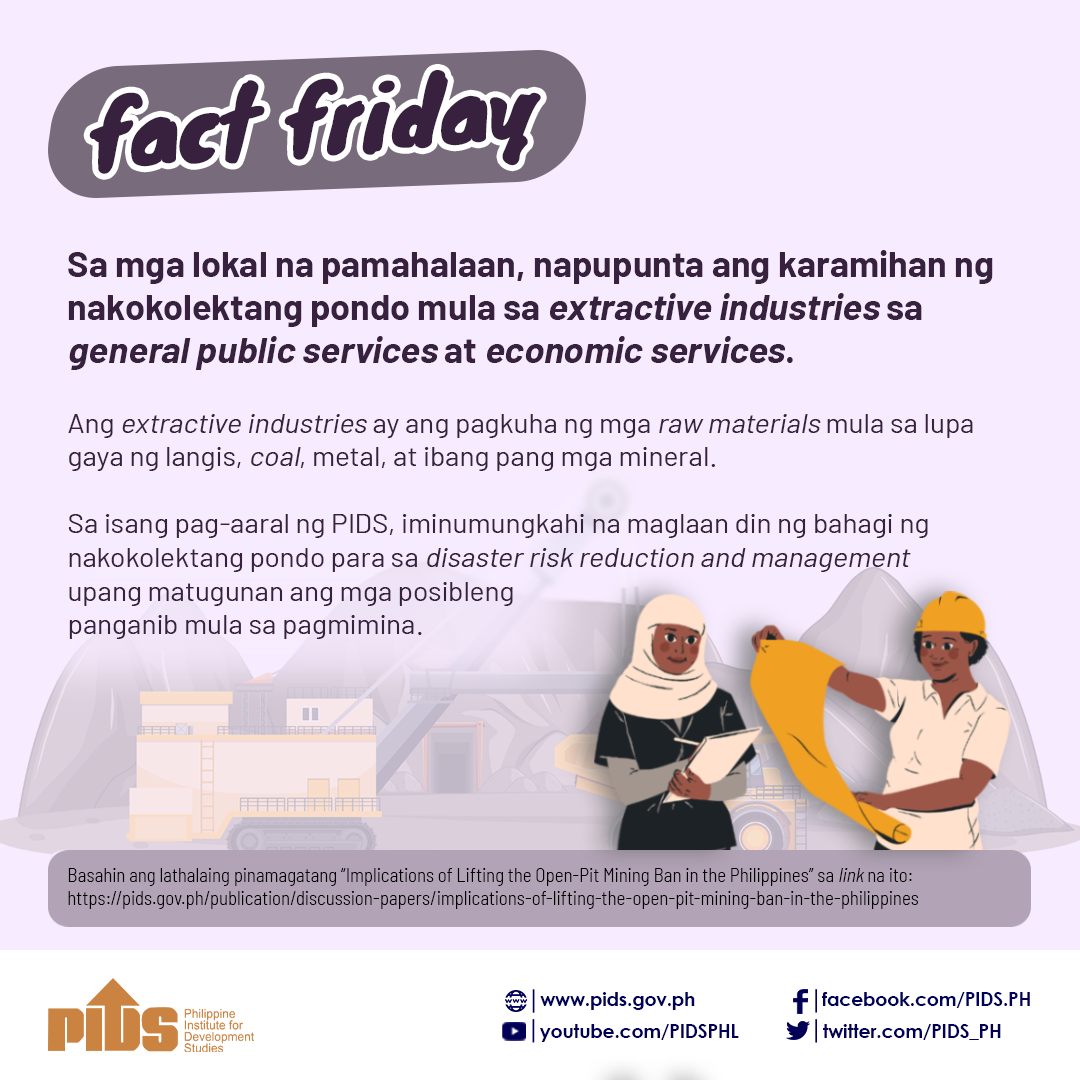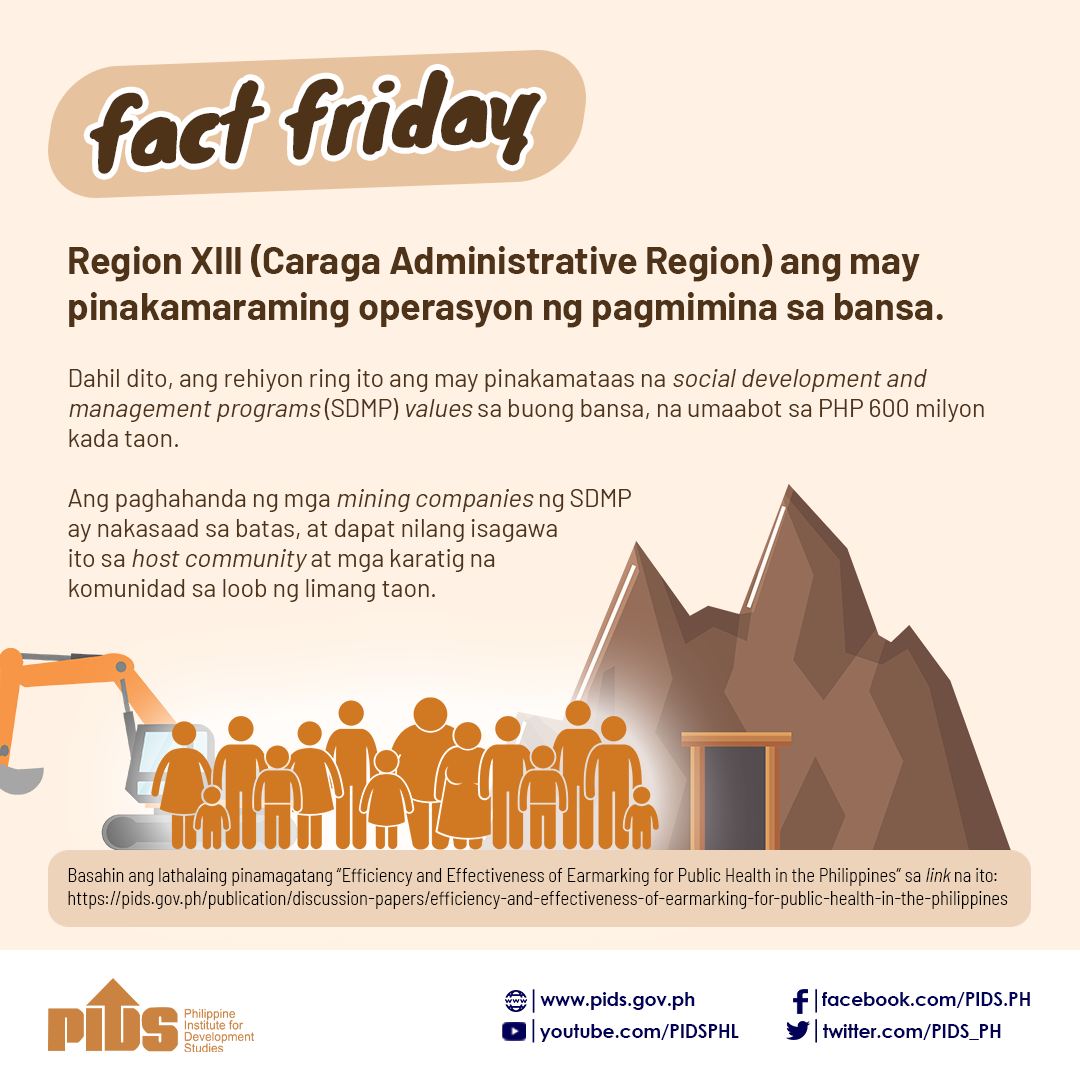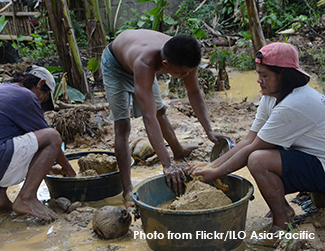
While small-scale mining is seen to bring employment and economic opportunities particularly in the countryside, issues continue to hound the sector.
A study published by state think tank Philippine Institute for Development Studies (PIDS) identified institutional, regulatory, labor, environmental, and social issues that hamper the development of the small-scale mining sector. The study is authored by Ludwig John Pascual, Sonny Domingo, and Arvie Joy Manejar, PIDS consultant, senior research fellow, and research analyst, respectively.
Foremost of the institutional issues is regarding the definition of small-scale mining under the law, which “does not fit its intended small-scale mining players and the eventual beneficiaries of government support”. According to the authors, this definition requires small-scale miners to be “duly licensed”, however, they “are barely capable to comply with the requirements [of the law] to be duly licensed”.
Furthermore, the agencies involved in small-scale mining also face problems, such as the lack of guidelines on their accreditation processes and lack of representation of other major stakeholders critical to the successful implementation of the People’s Small-scale Mining Program in certain provinces or regions.
The study also cited the conditions of the Bangko Sentral ng Pilipinas (BSP), the agency tasked to procure all gold produced by duly licensed small-scale miners, as “not conducive to attract” the latter. With many traditional small-scale miners not having bank accounts nor any government-issued identification cards to open one, they are unable to keep up with BSP’s payment in checks and the processing fees that are sometimes “already equivalent to the value of [the] gold” they sell.
Similarly, the Bureau of Customs (BOC) also faces problems in “curbing gold smuggling in the country”, as evidenced by “discrepancies in gold recorded by importing countries as against the gold recorded by the BOC as being legally exported”. This, according to the authors, “strengthens illicitness within the informal economy, from small-scale mining to the gold black markets”.
In terms of regulatory issues, the study discovered through interviews that the police and military officers have been extorting money from small-scale miners, forcing the latter not to follow the law. In addition, the requirements to establish Minahang Bayan where small-scale mining activities are allowed, “are very prohibitive for small-scale miners to comply with”, citing the too technical and expensive feasibility studies, work programs, and environmental impact analysis it requires.
Meanwhile, child labor continues to be a major issue affecting the sector, with six percent of its labor force constituting children according to 2017 data from the Mines and Geosciences Bureau in Region V.
On environmental issues, fieldworks in Compostella Valley revealed that small-scale miners still use mercury in extracting gold. Some informal operators are also reported to employ means such as blasting and the use of heavy equipment.
On social issues, the study mentioned the expensive process of securing the free, prior, and informed consent, a right that empowers indigenous peoples (IPs) to withhold consent to a project that may affect them. Depending on the extent of ancestral land areas to be used as part of Minahang Bayan, the process may amount to millions of pesos.
“This is a major bottleneck in the formalization and legalization of small-scale mining projects, especially in provinces or regions with IPs widely present,” the authors said.
To address these issues, the study provided key recommendations, one of which is the establishment of a cross-department council that “cannot be influenced by any single entity”.
“This is the most appropriate [measure], considering the scope of interdepartment coordination required and the urgency of the need to stop economic leakages,” the authors explained.
The study also urged the formalization of small-scale mining, enumerating three major actions needed, namely, a national research program, sector profiling, and stakeholder analysis.
It also stressed the need for redefined sector type, scale, and coverage, harmonized regulatory structures, and strict implementation of the People’s Small-scale Mining Program as well as complementary policies and regulations for contrabands.
As a way forward, the study said government approach, policy interventions, and action plans should be more focused on national research, vision-mission setting, strategies and roadmap development as well as implementation, monitoring, evaluation, and improvement.
“The general direction should be to make it more convenient for small-scale miners, host communities, and other stakeholders to remain compliant with the laws regulating the small-scale mining sector,” the study pointed out. ###
This press release is based on the PIDS policy note titled, “Answering critical questions on small-scale mining in the Philippines”.
A study published by state think tank Philippine Institute for Development Studies (PIDS) identified institutional, regulatory, labor, environmental, and social issues that hamper the development of the small-scale mining sector. The study is authored by Ludwig John Pascual, Sonny Domingo, and Arvie Joy Manejar, PIDS consultant, senior research fellow, and research analyst, respectively.
Foremost of the institutional issues is regarding the definition of small-scale mining under the law, which “does not fit its intended small-scale mining players and the eventual beneficiaries of government support”. According to the authors, this definition requires small-scale miners to be “duly licensed”, however, they “are barely capable to comply with the requirements [of the law] to be duly licensed”.
Furthermore, the agencies involved in small-scale mining also face problems, such as the lack of guidelines on their accreditation processes and lack of representation of other major stakeholders critical to the successful implementation of the People’s Small-scale Mining Program in certain provinces or regions.
The study also cited the conditions of the Bangko Sentral ng Pilipinas (BSP), the agency tasked to procure all gold produced by duly licensed small-scale miners, as “not conducive to attract” the latter. With many traditional small-scale miners not having bank accounts nor any government-issued identification cards to open one, they are unable to keep up with BSP’s payment in checks and the processing fees that are sometimes “already equivalent to the value of [the] gold” they sell.
Similarly, the Bureau of Customs (BOC) also faces problems in “curbing gold smuggling in the country”, as evidenced by “discrepancies in gold recorded by importing countries as against the gold recorded by the BOC as being legally exported”. This, according to the authors, “strengthens illicitness within the informal economy, from small-scale mining to the gold black markets”.
In terms of regulatory issues, the study discovered through interviews that the police and military officers have been extorting money from small-scale miners, forcing the latter not to follow the law. In addition, the requirements to establish Minahang Bayan where small-scale mining activities are allowed, “are very prohibitive for small-scale miners to comply with”, citing the too technical and expensive feasibility studies, work programs, and environmental impact analysis it requires.
Meanwhile, child labor continues to be a major issue affecting the sector, with six percent of its labor force constituting children according to 2017 data from the Mines and Geosciences Bureau in Region V.
On environmental issues, fieldworks in Compostella Valley revealed that small-scale miners still use mercury in extracting gold. Some informal operators are also reported to employ means such as blasting and the use of heavy equipment.
On social issues, the study mentioned the expensive process of securing the free, prior, and informed consent, a right that empowers indigenous peoples (IPs) to withhold consent to a project that may affect them. Depending on the extent of ancestral land areas to be used as part of Minahang Bayan, the process may amount to millions of pesos.
“This is a major bottleneck in the formalization and legalization of small-scale mining projects, especially in provinces or regions with IPs widely present,” the authors said.
To address these issues, the study provided key recommendations, one of which is the establishment of a cross-department council that “cannot be influenced by any single entity”.
“This is the most appropriate [measure], considering the scope of interdepartment coordination required and the urgency of the need to stop economic leakages,” the authors explained.
The study also urged the formalization of small-scale mining, enumerating three major actions needed, namely, a national research program, sector profiling, and stakeholder analysis.
It also stressed the need for redefined sector type, scale, and coverage, harmonized regulatory structures, and strict implementation of the People’s Small-scale Mining Program as well as complementary policies and regulations for contrabands.
As a way forward, the study said government approach, policy interventions, and action plans should be more focused on national research, vision-mission setting, strategies and roadmap development as well as implementation, monitoring, evaluation, and improvement.
“The general direction should be to make it more convenient for small-scale miners, host communities, and other stakeholders to remain compliant with the laws regulating the small-scale mining sector,” the study pointed out. ###
This press release is based on the PIDS policy note titled, “Answering critical questions on small-scale mining in the Philippines”.

